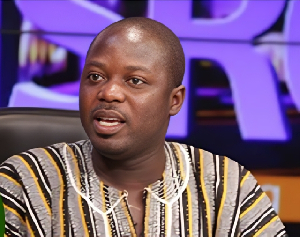 Ben Nsiah is the Executive Director of the Centre for Environment and Sustainable Energy
Ben Nsiah is the Executive Director of the Centre for Environment and Sustainable Energy
The Executive Director of the Centre for Environmental Management and Sustainable Energy (CEMSE), Ben Nsiah, has criticised international financial institutions, particularly the International Monetary Fund (IMF), for contributing to inefficiencies in Ghana’s public sector.
His comments follow the IMF’s endorsement of Ghana’s Energy Sector Shortfall and Debt Repayment Levy, which the Fund described as a strategic measure aligned with the country’s fiscal goals under the Extended Credit Facility (ECF) program.
In an exclusive interview with GhanaWeb Business on Friday, June 13, 2025, Nsiah argued that many levies imposed on citizens are not aimed at improving service delivery but rather at masking long-standing inefficiencies.
“I believe international bodies, including the IMF, are partly responsible for the inefficiency and ineffectiveness of our public sector. These levies are often introduced to cover inefficiencies rather than fix them. Instead of helping address the root causes, these institutions continue to support the imposition of levies, which only transfer the burden onto end users,” he said.
Nsiah noted that this trend has persisted since 2015, with little to no improvement in public sector performance.
“The outcomes remain unchanged. Efficiency hasn’t improved despite these measures,” he stressed.
He insisted that the solution lies in reforming the public sector itself, adding that CEMSE rejects the notion that new levies can resolve the power sector’s debt crisis.
“The IMF should refocus its support toward public sector reforms that drive efficiency. A more effective public sector would reduce the debt burden and ensure more sustainable service delivery, especially in the energy sector,” he stated.
“We do not agree with the argument that a new civil levy will solve the power sector’s debt crisis. If anything, it will worsen the situation by promoting further inefficiency,” Nsiah concluded.
SP/MA
#TrendingGH: Drivers react to government’s new GH¢1 energy levy on petroleum products
